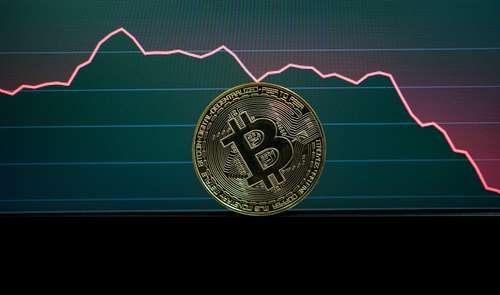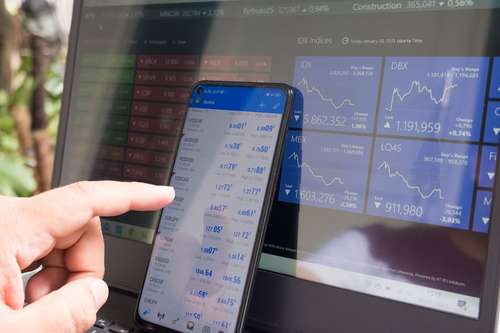The recent court decision has sent ripples through the cryptocurrency community, and it’s hard not to notice its impact on the ongoing legal battle between Ripple and the SEC. We’re all watching as the drama unfolds, and it feels like every step in this case is a new twist in a high-stakes thriller. Even seasoned crypto enthusiasts are left scratching their heads over the implications of this verdict.
The federal judge’s ruling to reject the joint motion by Ripple Labs and the SEC to set aside the $125 million penalty tied to institutional XRP sales has brought a significant new chapter to the case. With careful legal scrutiny and a focus on precedent, the judge made it clear that neither party has the power to alter the court’s decision. This isn’t just another courtroom battle; it’s a decisive moment that could shape the regulatory environment for digital currencies and securities law for years to come.
Main Sections
This section explores the details of the judge’s decision, what it means for Ripple and the SEC, and the potential broader impacts on the cryptocurrency market. The ruling has sparked many questions and discussions among legal experts and industry insiders alike.
Judge's Ruling and Its Implications
The judge’s decision came after careful consideration of the motion brought forth by both Ripple and the SEC, which sought to set aside the hefty $125 million penalty. In what many might say is a surprising outcome, the ruling noted that any attempt to reverse the injunction on XRP sales must follow strict legal and regulatory protocols. This isn’t a matter where a simple agreement between parties can override the court’s authority.
This ruling serves as a firm reminder of the checks and balances inherent in our legal system. It’s almost as if the judge is saying, "The law is the law, and no amount of back-and-forth between powerful entities can change that overnight." It’s a statement that reverberates well beyond this single case, reminding everyone involved that regulation cannot be sidestepped through settlements or mutual understandings.
For Ripple, this decision is a setback. The company had hoped that the motion would offer a reprieve from the penalties associated with previous institutional XRP sales. Instead, the court decision indicates a tough road ahead with continued scrutiny on whether the sales were conducted within the bounds of securities regulation. This message to all market participants is clear: transactions tied to digital currencies, especially those stacked with controversies, are unlikely to receive leniency simply due to settlement agreements.
It’s a situation that many in the crypto community can relate to. Imagine spending years on a project only to have a single decision negate much of the hard work that went into clearing the regulatory hurdles. That feeling of frustration and disbelief is exactly what many Ripple supporters are experiencing right now.
Impact on the Cryptocurrency Market
The ruling doesn’t just affect Ripple and the SEC—it sends a broader message to the cryptocurrency community about the current state of regulatory oversight. With this decision, the court reinforces that seemingly innovative approaches to bypassing securities laws will not be tolerated.
The crypto market is like a vast ocean, filled with both promise and peril. While digital currencies continue to capture the imagination of investors and tech enthusiasts, this court decision is a reality check. It shows that established financial regulations are still very much in play, and that can shake the confidence of those who see digital currencies as free from government oversight.
Some industry experts now believe this may lead to more cautious behavior among issuers and traders. When even a powerhouse like Ripple cannot sidestep the legal ramifications of its actions, it might encourage others to tread more carefully. The ruling ultimately reinforces the idea that the rule of law holds strong, even in the fast-evolving world of blockchain and digital currency.
It’s also worth noting that the decision may pave the way for future litigation and regulatory actions. The message is clear: the SEC and similar regulatory bodies have the backing of the court when it comes to enforcing securities laws, and that could lead to more robust investigations into ICOs, digital tokens, and blockchain ventures.
Moreover, the outcome might affect investor confidence in XRP and other digital currencies. A court decision like this serves as a cautionary tale, highlighting that legal battles can have far-reaching effects on market sentiment and overall financial market stability.
The Legal Battle and Future Prospects
The ongoing legal battle is fraught with complexity and intense scrutiny. Both Ripple and the SEC have been entrenched in a legal tug-of-war that pits innovative financial technologies against traditional regulatory frameworks. The recent ruling is just one piece of a much larger puzzle.
With the motion rejected, it’s likely that Ripple and the SEC will need to explore other legal avenues to resolve the issues related to XRP sales. This could mean prolonged litigation and possibly more rulings that fine-tune the boundaries between what constitutes a security sale and what doesn’t in the context of cryptocurrencies. Observers of the digital currency market might argue that these legal maneuvers are as strategic as a chess match, where every move could have significant long-term implications.
For the shareholders and institutional investors, this is a reminder that even large-scale settlements cannot shield them from intensive judicial review. The judge’s remarks underline the importance of following the strict letter of the law, regardless of the technological progress that digital currencies represent. It’s like trying to navigate a ship through stormy seas; no matter how advanced your vessel, you still must respect the forces of nature.
Also, it’s essential to consider that the ripple effect of this decision will likely stir further regulatory discussions across the United States. Experts are already speculating whether new legislative measures may be drafted to address the emerging challenges at the intersection of blockchain technology and traditional securities law.
What This Means for Ripple and the Wider Crypto Community
So, what’s next for Ripple and the broader crypto market? While the ruling is a setback, both Ripple and its supporters are known for their resilience. Much like any significant struggle in business or technology, this challenge could pave the way for greater clarity and more robust regulation in the long run.
The impact on XRP sales could be seen as a precedent for future cases. If similar injunctions are imposed on other digital currencies, it might force companies to rethink how they approach consultations with regulators. In a way, it’s a wake-up call that the legal ecosystem is catching up to technological innovations, ensuring that financial markets remain transparent and equitable.
This decision reinforces that while blockchain technology and digital currencies offer promising advances, they cannot escape the realities of legal and regulatory oversight. As the legal battle continues, the market will be watching closely to see if new paths are forged that balance innovation with the imperatives of investor protection and market stability.
In conclusion, the judge’s decision to reject the motion to set aside the penalty on institutional XRP sales reflects a robust enforcement of securities regulation. It sends a definitive message that regulatory frameworks are here to stay—even in the fast-moving world of crypto. For Ripple, the journey ahead seems fraught with challenges, but for the crypto community, it’s a powerful reminder of how the law plays a central role in shaping the future of digital currencies. The ruling might just mark the beginning of a new era in the intersection of blockchain technology and legal oversight!




